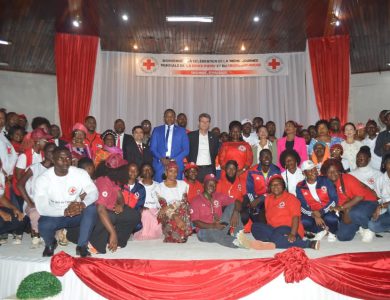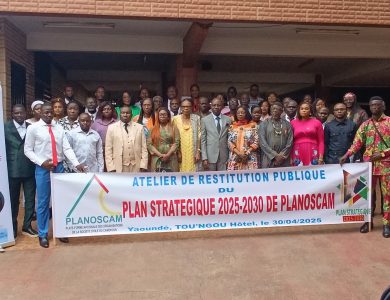The recurrent floods in the Far North Region and other parts of Cameroon, environmental engineers say, can be prevented if Cameroon successfully applies the Kigali Ammendment.
About the Kigali Ammendment
The Kigali Amendment, environmentalists say, is an international agreement that aims to phase down the production and consumption of hydrofluorocarbons, which are potent greenhouse gases commonly used in air conditioning, refrigeration and insulating foams.
The Kigali Amendment was adopted in 2016 as an extension of the Montreal Protocol, which originally focused on protecting the ozone layer by eliminating ozone-depleting substances like chlorofluorocarbons.
“Hydrofluorocarbons do not deplete the ozone layer, but they are powerful contributors to climate change, a global warming potential much higher than carbon dioxide,” explains and Environmental Engineer, Jennifer Arrey-Ebob.
She continues, “So, the Kigali Amendment seeks to gradually reduce the use of hydrofluorocarbons by over 80% by the year 2047 and this is expected to significantly help in curbing global temperature rise by preventing the emission of up to about 0.5°C of warming by the end of the century.”
The Engineer adds that this amendment is legally binding for the countries that have ratified it, with specific timetables for developing and developed countries to phase down their hydrofluorocarbons usage.
“It is seen as an important step in global efforts to address climate change in line with the goals of the Paris Agreement,” she notes.
Cameroon and the Kigali Amendment
It is worth noting that Cameroon ratified the Kigali Amendment to the Montreal Protocol on the 31st of July 2021.
“By doing this, Cameroon committed to gradually phasing down the use of hydrofluorocarbons and contributing to the global efforts to reduce greenhouse gas emissions and combat climate change,” Engineer Jennifer Arrey-Ebob explains.
How can the Amendment Save Cameroon from Floods?
The Environmental Engineer insists that reducing hydrofluorocarbons emissions through the Kigali Amendment can help slow down global temperature rise, which in turn helps in mitigating the effects of climate change, including extreme weather events like floods.
“It can contribute to flood prevention by phasing down hydrofluorocarbons, preventing the global temperature rise by the end of the century,” she explains.
Engineer Jennifer Arrey-Ebob adds, “Since warming temperatures intensify the water cycle, leading to more extreme rainfall and flooding, reducing warming can lessen the risk of such events.”
Furthermore, global warming disrupts natural weather patterns, leading to more intense storms and unpredictable rainfall. Environmentalisys therefore argue that, slowing temperature rise can stabilise these patterns and reduce the occurrence of heavy rainfall that causes flooding.
Therefore, since the Kigali Amendment targets climate change mitigation a great deal, its effects can play a significant role in reducing the conditions that lead to increased flooding.
Eleanor Ayuketah Ngochi











